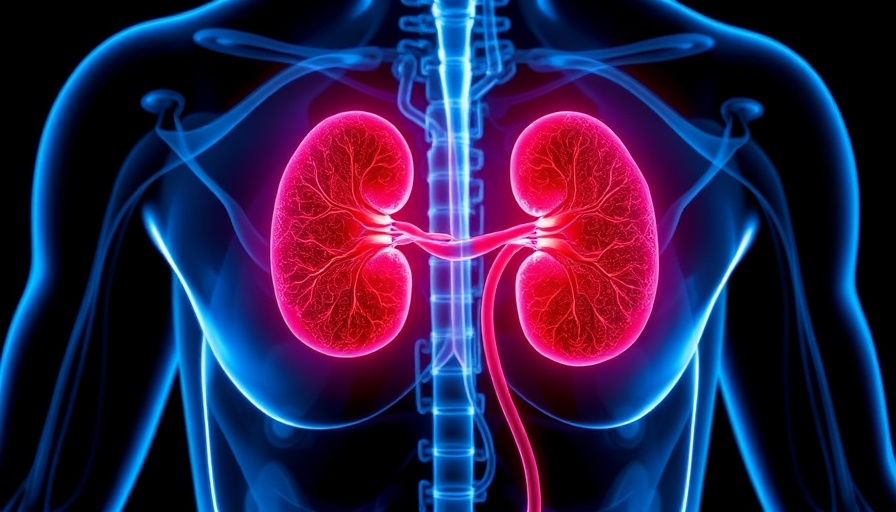
Understanding the Connection: Kidney and Liver Health
Many people may not realize just how intertwined kidney health and liver health truly are. These two vital organs collaborate in many physiological processes that keep our bodies functioning optimally. The symbiotic relationship highlights the importance of maintaining both organ systems for overall well-being.
Shared Roles in Detoxification
Both kidneys and liver serve as critical filtration systems for the body, working tirelessly to remove toxins. The liver metabolizes substances, creating bile to break down fat-soluble waste. After the liver processes waste, the kidneys step in to filter the blood, expelling these byproducts through urine. If either organ fails to function properly, harmful substances can accumulate in the body, leading to health complications.
The Challenge of Systemic Inflammation
Chronic liver diseases such as hepatitis can cause a cascade of systemic inflammation impacting kidney function. The inflammatory molecules that spill over into the bloodstream can harm kidney tissues, creating conditions that may lead to further complications.
The Importance of Electrolyte Balance
The liver plays a role in regulating fluid and electrolyte balance, while the kidneys are key in excreting and retaining these vital components. A malfunctioning liver can disrupt this delicate balance, leading to added strain on the kidneys. For families with a history of liver or kidney issues, awareness and monitoring of these organs are essential.
Chronic Health Conditions and Their Impact
Common chronic health issues like diabetes and hypertension present shared risk factors for kidney and liver dysfunction. For example, non-alcoholic fatty liver disease (NAFLD) directly associates with kidney problems, illustrating how intertwined these organ systems truly are. As a family member, knowing the signs and symptoms can lead to early intervention, preventing further health decline.
Community Awareness and Family Health
The health of our kidneys and liver doesn’t just relate to individual actions; it emphasizes the importance of community health. When families understand the connection between these organs, they can better support each other's well-being. Nutrition plays a massive role in keeping both the liver and kidneys functioning well. A healthy diet can mitigate risk factors associated with both organs.
Taking Action: What You Can Do
To support the health of both your liver and kidneys, consider integrating these habits into your routine:
- Stay Hydrated: Adequate water intake is essential for both organ health.
- Balanced Diet: Focus on a diet rich in fruits, vegetables, and whole grains while limiting processed foods.
- Regular Checkups: Regular medical checkups can help catch issues early.
- Know Your Family History: Awareness of familial health issues can lead to proactive decisions in your own lifestyle.
Taking these steps not only promotes individual health but strengthens the safety net of family health. Investing in knowledge and community support is crucial for thriving amidst chronic health conditions.
For more tips on supporting liver and kidney health, explore Natural Wellness products focused on enhancing organ function. Prioritize your family's health—promote healthy choices today!
 Add Row
Add Row  Add
Add 




 Add Row
Add Row  Add
Add 

Write A Comment